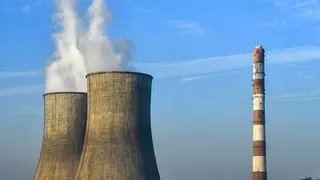London zinc fell to a four-month low on Thursday, tracking the prices of other steel materials as demand from construction got off to a slow start in the usually strong second quarter.
London Metal Exchange zinc slid 2.7 per cent to $3,150 a tonne by 0244 GMT, having earlier touched a low of $3,133.50, its weakest since December 12. Prices crashed through support at the 200-day moving average of $3,172 a tonne, triggering a rush in sales from funds, a trader said.
Copper
LME copper fell 0.8 per cent to $6,893 a tonne reflecting a sour tone across metals amid broad risk-off sentiment in the markets. Shanghai Futures Exchange copper fell 1 per cent to 50,610 yuan ($8,063.40) a tonne.
Iron ore futures in China have been falling, with investors worried about slipping steel margins this year and leaner demand in the world's top consumer. A seasonal pick-up in China's construction activity that usually comes in April and May has been off to a slow start, traders said.
Longer term, zinc prices are expected to remain buoyant after hitting their highest in a decade because of years of underinvestment, the founder and chairman of Vedanta Resources had said on Wednesday.
Environmental inspections
The Chinese city of Xuzhou is carrying out environmental inspections targeting air pollution emissions at industrial plants, construction sites and in the transport sector that are expected to last for as long as six months.
International financial groups took action on Wednesday to distance themselves from the shares, bonds and metal of Russian aluminium giant Rusal after the United States imposed sanctions on the company.
CME Group has also revoked the approved status for registration of Russian firm Rusal's metal for delivery against its aluminium futures contracts, according to a notice on its website.
Trader Glencore, a Rusal shareholder and customer, will declare force majeure on some aluminium supply, a source familiar with the matter said.
Asian stocks came under pressure on Thursday as the threat of imminent US military action in Syria rattled investors and sent oil prices to their highest levels since late 2014 on concerns about supply.








Comments
Comments have to be in English, and in full sentences. They cannot be abusive or personal. Please abide by our community guidelines for posting your comments.
We have migrated to a new commenting platform. If you are already a registered user of TheHindu Businessline and logged in, you may continue to engage with our articles. If you do not have an account please register and login to post comments. Users can access their older comments by logging into their accounts on Vuukle.